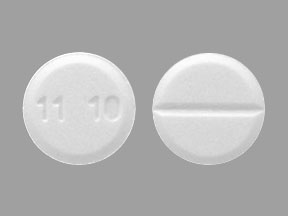Cyproheptadine Interactions
There are 328 drugs known to interact with cyproheptadine, along with 4 disease interactions, and 1 alcohol/food interaction. Of the total drug interactions, 10 are major, 316 are moderate, and 2 are minor.
- View all 328 medications that may interact with cyproheptadine
- View cyproheptadine alcohol/food interactions (1)
- View cyproheptadine disease interactions (4)
Most frequently checked interactions
View interaction reports for cyproheptadine and the medicines listed below.
- Abilify (aripiprazole)
- Adderall (amphetamine / dextroamphetamine)
- Adderall XR (amphetamine / dextroamphetamine)
- Ativan (lorazepam)
- Benadryl (diphenhydramine)
- Claritin (loratadine)
- Cymbalta (duloxetine)
- Fish Oil (omega-3 polyunsaturated fatty acids)
- Flonase (fluticasone nasal)
- Lamictal (lamotrigine)
- Lexapro (escitalopram)
- Lyrica (pregabalin)
- MiraLAX (polyethylene glycol 3350)
- Nexium (esomeprazole)
- ProAir HFA (albuterol)
- Probiotic Formula (bifidobacterium infantis / lactobacillus acidophilus)
- Protonix (pantoprazole)
- Prozac (fluoxetine)
- Seroquel (quetiapine)
- Singulair (montelukast)
- Topamax (topiramate)
- Tylenol (acetaminophen)
- Vitamin B12 (cyanocobalamin)
- Vitamin C (ascorbic acid)
- Vitamin D3 (cholecalciferol)
- Vyvanse (lisdexamfetamine)
- Xanax (alprazolam)
- Zofran (ondansetron)
- Zoloft (sertraline)
- Zyrtec (cetirizine)
Cyproheptadine alcohol/food interactions
There is 1 alcohol/food interaction with cyproheptadine.
Cyproheptadine disease interactions
There are 4 disease interactions with cyproheptadine which include:
More about cyproheptadine
- cyproheptadine consumer information
- Compare alternatives
- Pricing & coupons
- Reviews (213)
- Drug images
- Side effects
- Dosage information
- During pregnancy
- Support group
- Drug class: antihistamines
- Breastfeeding
- En español
Related treatment guides
Drug Interaction Classification
| Highly clinically significant. Avoid combinations; the risk of the interaction outweighs the benefit. | |
| Moderately clinically significant. Usually avoid combinations; use it only under special circumstances. | |
| Minimally clinically significant. Minimize risk; assess risk and consider an alternative drug, take steps to circumvent the interaction risk and/or institute a monitoring plan. | |
| No interaction information available. |
See also:
Further information
Always consult your healthcare provider to ensure the information displayed on this page applies to your personal circumstances.


